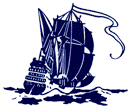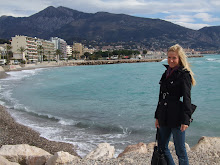Phew! It's been a busy couple of weeks. Since my last post, I spent about a week longer in the Maldives and then made my way to South Africa. Before leaving the Maldives, I visited a few more islands (including Thilafushi- an island reclaimed completely by rubbish and used as the country's dump) and fit in a few more beach clean ups.
Catching a lift with one of the country's soccer teams, I took a dhoni (the traditional Maldivian boat) to an inhabited island in the North Male' Atoll called Huraa. The ride was nearly 2 hours but the on-board entertainment made it go by quickly. I watched, and then was insisted on joining, as the entire team played a game described to me as a "singing competition." On the top deck, lit only by the moonlight, I attempted to join as the guys danced and sang Dhivehi songs, although the only lyrics I recognized the whole night were during two guys' short rendition of "Who Let the Dogs Out." On Huraa, I was graciously accommodated in the island's tuna factory, and even invited to join the factory workers at meal times. Situated between two resort islands, and having been heavily impacted by the 2004 Tsunami, the island's beaches were in need of a cleaning. Although I was not able to remove some of the debris, such as a washing machine and large plates of lumber, I cleaned several beaches and noticed most of the trash was likely from the nearby resorts. It is widely known that nearly all of the resorts in the Maldives dump their trash into the ocean. Although there are obviously laws against this, enforcement is nearly impossible and inhabited islands such as Huraa are seeing the devastating effects of this. My most interesting item found during these clean ups was probably the torso of a large plastic mannequin.
One of the local dive shops in Male' hosts a month-long underwater cleanup on the Male' reef each year, where dozens of divers throughout the country come to participate. It is a huge community event where even non-divers come out to help take care of the 6 to 8 tons of rubbish that usually gets pulled up. Unfortunately I was just a month too early to join the cleanup, but was still able to visit the site to get a look at the trash. And boy, was there trash. Embedded in the coral I spotted bed sheets, street signs, a DVD player, bottles, a tricycle, banners from the latest election still attached to metal poles, fishing line, metal baskets... I found enough dishes and cutlery to fill the kitchen cupboards of my apartment this fall.
I've now been in South Africa for nearly 2 weeks. My father decided to make the trip out to visit me and of course, I've put him to work cleaning beaches. On an 8-day coastal roadtrip from Cape Town to Port Elizabeth and back, we managed a nice balance of work and play. Puttering along in a VW Chico, we stopped periodically to visit marine research centers and scope out the debris situation on the capes.
.
Our first stop was Hausten Bay, where we joined Vic Hamilton-Attwell, a retired professor of zoology, on his weekly beach cleanup. Every Wednesday for the past 3 and a half years, he has spent several hours picking up debris on a 500 meter stretch of beach along the rocky, kelp-filled shores of the Western Cape. Over beers and pizza following the cleanup, we discussed his take on marine debris in South Africa. His theory, which I found to be quite consistent between everyone I interviewed, was that most of the debris can be traced back to the hundreds of squid fishing boats along the Western and Eastern Capes.
.
Another stop off was in Cape St. Francis, where I spoke with the manager of the Penguin Rescue Center. Sitting along side a pool filled with dozens of squawking penguins, she told me sorrowing stories of sea birds, penguins, dolphins, and turtles found entangled in rubbish or sick from ingestion of plastic. She estimated that one in ten of the penguins she sees are sick from plastic ingestion, which she refers to as a "death sentence."
.
On a lighter note, my dad and I spent some time touring the beautiful areas of the Garden Route. We fit in some hiking, a Great White Shark cage dive, a skydive (my dad opted out of those last two) and a day at Addo National park where we found ourselves in the center of a herd of nearly 20 African elephants.
.
I have one last meeting in the Cape Town Harbor to join the Marine and Coastal Management as they attend to entagled seals in the harbor before it's time to catch a plane to London.
Next stop: The Jurassic Coast of Southern England






